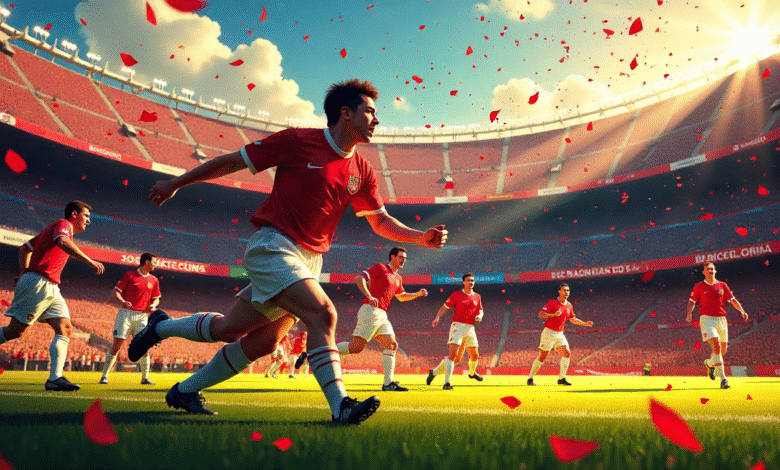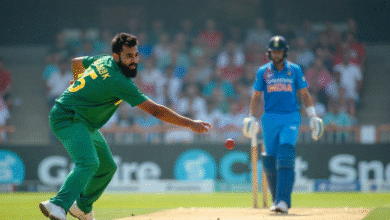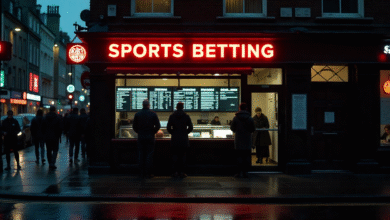Manchester United’s First Cup Triumph: History, Journey, and Legacy

Cup competitions hold a special place in English football. While league titles reward consistency over months, cup victories embody drama, knockout tension, and historic glory. For clubs and fans, lifting a first cup trophy is a rite of passage, symbolizing the arrival of a team among the nation’s elite.
For Manchester United, a club now synonymous with silverware, that defining breakthrough came in 1909, when they captured their first FA Cup. The story of the Manchester United first cup triumph is a tale of resilience, ambition, and legacy-building that began in the early 20th century.
The Role of Cup Competitions in English Football
The FA Cup, established in 1871, is the world’s oldest football competition and quickly became the crown jewel of English football. Winning it brought prestige, financial gain, and a chance for clubs to etch their names into national history.
By the turn of the 20th century, the FA Cup was not just a sporting prize but also a cultural event that united communities. For Manchester United, still building its identity after rebranding from Newton Heath in 1902, chasing cup success was essential to cementing their reputation.
Manchester United’s Early Pursuit of Cup Success
In the years before their breakthrough, Manchester United made several attempts to progress deep into the FA Cup.
- In the early 1900s, the club often struggled to advance beyond the initial rounds.
- Their league form gradually improved under manager Ernest Mangnall, who took charge in 1903.
- By the mid-1900s, with financial backing from John Henry Davies and the arrival of key players, United began to emerge as serious contenders.
Sequentially, these developments set the stage for the historic 1908–09 season. After securing their first league title in 1908, United turned their sights to cup glory.
The Breakthrough – United’s First FA Cup Victory in 1909
The 1908–09 season was monumental. United not only built on their league success but also made history by lifting the FA Cup for the first time.
- Final Venue: Crystal Palace, London
- Attendance: Approximately 71,000 spectators
- Result: Manchester United 1–0 Bristol City
Statistical evidence underlines the significance: United became only the second club in Manchester to win the FA Cup, after rivals Manchester City in 1904.
Key Matches on the Road to Wembley
United’s road to the final featured several defining games:
- Quarter-Final vs. Burnley: A hard-fought victory demonstrated their determination.
- Semi-Final vs. Newcastle United: United’s 1–0 win shocked many, as Newcastle were favorites for the trophy.
Each of these matches tested United’s character and showcased the attributes that would define their first cup success—grit, discipline, and moments of individual brilliance.
The Final Against Bristol City
On 24 April 1909, United faced Bristol City in the FA Cup final. The match was tight, but Sandy Turnbull scored the decisive goal, sealing a 1–0 victory.
This triumph was historically significant for several reasons:
- It was United’s first cup triumph, marking their entry into the elite ranks of English football.
- The victory elevated the club’s profile nationally.
- It provided proof that United could win not just league honors but also thrive in knockout competition.
Star Players of the 1909 FA Cup Triumph
The success was shaped by a blend of tactical discipline and standout performers:
- Sandy Turnbull: The match-winner in the final and a consistent scorer throughout the campaign.
- Billy Meredith: Known as the “Welsh Wizard,” his dribbling and creativity were vital in unlocking defenses.
- Charlie Roberts: The captain, whose leadership at the back ensured defensive solidity.
Comparatively, each star contributed uniquely: Turnbull with decisive goals, Meredith with artistry, and Roberts with resilience. Together, they embodied the team’s balance of flair and fight.
The Aftermath and Immediate Impact
Winning the FA Cup in 1909 had immediate consequences for Manchester United:
- Financial boost: Increased attendance and revenues helped the club reinvest in facilities.
- Enhanced reputation: United joined the ranks of respected English clubs, no longer viewed as upstarts.
- Cultural pride: Fans celebrated not just a football victory but also Manchester’s growing influence on the national stage.
Evidence repeating itself across history shows that silverware often accelerates a club’s growth. United’s FA Cup win was no exception—it fueled ambition for greater achievements in subsequent decades.
Comparing United’s First Cup Win with Rival Clubs
At the time, several rivals had already lifted the FA Cup:
- Manchester City: Won in 1904, giving them early bragging rights in Manchester.
- Aston Villa: Multiple-time winners, already established as giants of English football.
- Newcastle United: Regular contenders, though shocked by United’s semi-final victory in 1909.
The comparison highlights how United’s win positioned them firmly among the era’s competitive clubs. While City had struck first in Manchester, United’s victory added intensity to the rivalry and set the foundation for their eventual dominance.
Cultural Impact of Manchester United’s First Cup Triumph
For the people of Manchester, the 1909 victory was a source of immense pride. It validated the club’s transformation from Newton Heath’s financial struggles to United’s rise as champions.
The cultural resonance extended beyond sport. The win connected working-class fans to a sense of identity and belonging, while also increasing Manchester’s prestige in national discussions.
Even today, United’s FA Cup history is celebrated by fans worldwide, with heritage sites and fan forums keeping these early triumphs alive. Modern fans who enjoy diving deeper into football culture and stories often engage through platforms like ufabet168, where football’s heritage meets broader fan interaction.
The Legacy of United’s First Cup Success
The Manchester United first cup triumph in 1909 was more than a single victory—it was a turning point. It confirmed the club’s potential to win on multiple fronts and laid the groundwork for future glories.
- It bridged United’s early struggles with the legacy of a trophy-winning club.
- It set a precedent for the importance of both league and cup competitions in the club’s ambitions.
- It forged heroes like Turnbull, Meredith, and Roberts into United legends.
For modern fans, this legacy continues to inspire. Celebrating cup victories connects past and present, showing that even today’s global powerhouse was once a club striving for its first taste of silverware.
And just as football brings fans together historically, today’s passion extends into other arenas of engagement, including cultural and entertainment platforms like แทงบอลออนไลน์, where sport intersects with wider experiences.
In conclusion, Manchester United’s first cup triumph in 1909 was not simply a victory—it was the spark that ignited over a century of ambition. From that single goal at Crystal Palace to countless trophies since, it remains a cornerstone of United’s identity and a reminder that every dynasty begins with a first breakthrough.




